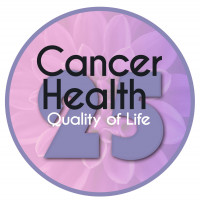The Cancer Health 25 is an annual list that honors individuals who have made a difference in the lives of people with cancer. This year’s theme is quality of life. To see the full list, click here.

During a time when it wasn’t well-recognized, Patricia Ganz, MD, a medical oncologist for over 40 years, became a pioneer in assessing the physical and emotional quality of life for people with cancer. She helped create the field of cancer survivorship.
As a young girl, Patricia Ganz, MD, watched as her father took care of the people around him. He was a doctor, who one day encouraged Ganz to follow in his footsteps. Ganz resisted the idea at first but in her junior year of college she changed her mind. “I realized that I loved human interaction, and that’s when I decided to become a physician,” she told The ASCO Post in 2021.
As a medical student, Ganz had plans to be a cardiologist. But witnessing how the then-new drug Cisplatin could cure men of testicular cancer, she decided to pursue a career in oncology.
When she started working with women with breast cancer, however, Ganz witnessed that many complained, justifiably, about the brutal side effects of chemotherapy treatment, according to the ASCO Post.
At the Veterans Adminstration, she worked on a program to develop a palliative care program for people with advanced cancer who were nevertheless not at the end of their life. She realized that it is possible to incorporate a focus on quality of life into the management of cancer. She is among the small group of doctors and scientists who founded the National Coalition for Cancer Survivorship in 1986.
Ganz is a professor at the University of California, Los Angeles (UCLA), where she graduated from med school in 1973. She’s been a faculty member in the School of Medicine and the School of Public Health since 1977 and 1992, respectively. Since 1993, Ganz has been the director of prevention and control research at UCLA’s Jonsson Comprehensive Cancer Center. In 2006, she was awarded funding to lead UCLA’s Cancer Survivorship Center of Excellence.
Her current work focuses on survivorship challenges among younger breast cancer survivors. “If you develop cancer in your 30s, for instance, it’s usually the only health issue you have, and we oncologists have added to that burden with the treatments we’re giving you,” she told the ASCO Post. “So, it’s important to understand the unique challenges faced by younger cancer survivors and develop tools to address their needs and long-term complications, such as depression in younger women with breast cancer.
For Ganz, all her work comes down to helping people with cancer survive well. As she told UCLA, “You never know when you treat a patient whether they will be a survivor or not. And when you are successful, it’s magic.”







Comments
Comments